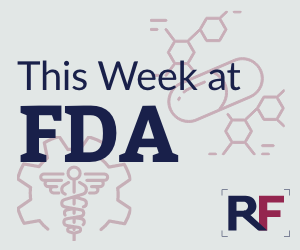This Week at FDA: Califf on Twitter, ‘face-to-face’ meetings, and more
 Biologics/ biosimilars/ vaccinesBiotechnologyDiagnostics/IVDsMedical DevicesNorth AmericaPharmaceuticalsProduct LifecycleRegulatory Intelligence/Policy
Biologics/ biosimilars/ vaccinesBiotechnologyDiagnostics/IVDsMedical DevicesNorth AmericaPharmaceuticalsProduct LifecycleRegulatory Intelligence/Policy Biologics/ biosimilars/ vaccinesBiotechnologyDiagnostics/IVDsMedical DevicesNorth AmericaPharmaceuticalsProduct LifecycleRegulatory Intelligence/Policy
Biologics/ biosimilars/ vaccinesBiotechnologyDiagnostics/IVDsMedical DevicesNorth AmericaPharmaceuticalsProduct LifecycleRegulatory Intelligence/Policy